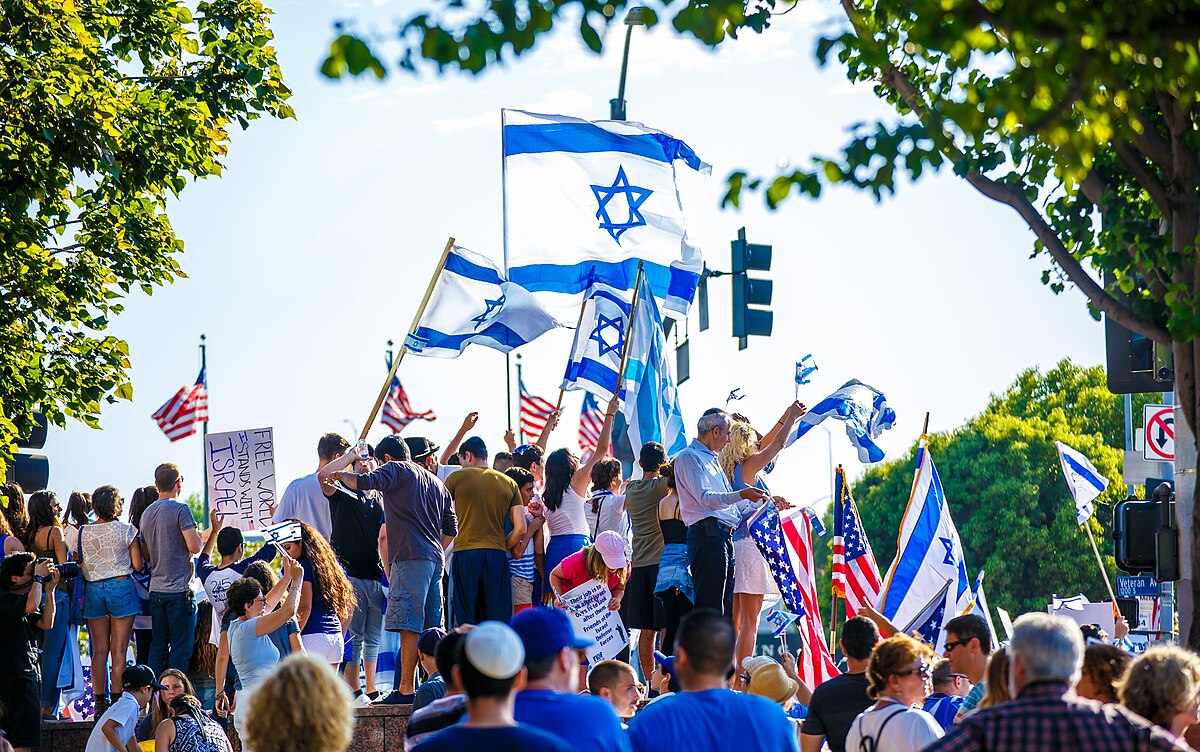By Matija Šerić
After the Cold War, the Israeli lobby adapted its strategies to the new global context. The focus shifted to the peace process between Israelis and Palestinians, which the lobby sought to undermine or direct in ways unacceptable to the Palestinians. The September 11, 2001 terrorist attacks on the U.S. significantly altered U.S. foreign policy. The Israeli lobby used the new focus on the war on terror to strengthen U.S.-Israeli ties, portraying Israel as a key ally in this fight.
The Israeli lobby had a significant influence on George W. Bush’s decision for the U.S. to invade Afghanistan in 2001 and Iraq in 2003. Of course, it would be unfair to say that the “war on terror” was initiated by Israeli lobbying groups, but it is accurate to state that they accelerated and expanded it.
Likewise, lobbying organizations were responsible for incorporating the rejection of Israeli-Palestinian peace negotiations into the concept of the war on terror. Lobbying groups and individuals were vocal in equating Osama bin Laden with Yasser Arafat. Although the Bush administration initially opposed this view and the halting of Israeli-Palestinian dialogue, even wanting to resume negotiations, lobbyists prevailed, and the Bush administration adopted the policies of Ariel Sharon’s government. This is indeed a rare historical example where a superpower was “forced” to adopt the policies of a small state. The Arab Spring of 2011 brought instability to the Middle East, further intensifying the lobby’s efforts to ensure continued U.S. support for Israel. Their focus was on Iran’s nuclear program and organizations like Hamas, Palestinian Islamic Jihad, and Hezbollah. The lobby is behind numerous U.S. vetoes in the UN Security Council that condemn Israel’s actions in Palestinian territories.
U.S. Aid to Israel
Israel has been the largest recipient of U.S. economic and military aid since its founding. From 1948 to 2024, it received approximately $310 billion (adjusted for inflation) in total economic and military assistance. The U.S. has also provided significant aid packages to other Middle Eastern countries, especially Egypt and Iraq, but Israel stands out. For decades, Israel has used advanced U.S.-made weaponry against its adversaries, including Hamas, Hezbollah, and Iran. In 2022, Washington sent $3.3 billion in mostly military and some economic aid to Israel, making it the second-largest recipient after Ukraine ($12.4 billion). The U.S. agreed, through a memorandum of understanding, to provide Israel with $3.8 billion annually until 2028. However, the outbreak of the Hamas-Israel war prompted U.S. policymakers to increase aid to $12.5 billion annually. Israel has agreed to use American weapons solely for self-defense. President Biden urged his ally to use U.S. weapons in compliance with international norms of warfare and international law.
The Influence of American Jews
Although Jews make up only 2.4% of the U.S. population (about 7.5 million people), they account for 50% of American billionaires. American Jews represent 20% of professors at leading American universities, 40% of employees in major law firms, 59% of writers and directors, and half of the top 200 American intellectuals. About 94% of American Jews live in states with significant electoral importance. The state of New York has the largest Jewish population in the U.S. – around 9%. The capital, Washington D.C., has 7.8%, New Jersey about 6%, Massachusetts 4-5%, Maryland 3.8%, Pennsylvania 3.3%, and Florida and California each have about 3% of the Jewish population. Pennsylvania and Florida are key swing states where the outcome of U.S. presidential elections is often determined. Since the competition for every vote is fierce, the large Jewish population has a significant influence on the race for the White House.
In practice, candidates compete to adopt more pro-Israel positions to attract Jewish voters. Additionally, Jewish lobbying groups donate billions of dollars during election campaigns. Jewish individuals hold director positions in the three major television networks, and four major film companies are owned by Jewish capital. Furthermore, the most influential U.S. newspaper, The New York Times, is owned by A.G. Sulzberger, an American Jew.
Views of American Jews
The Israeli lobby should not be equated with American Jews. In many cases, they do not share the views of Israeli lobbyists, such as strong opposition to any Palestinian state, the retention of all occupied territories in the West Bank, and aggressive rhetoric toward Iran, Syria, and other Muslim countries in the Middle East. Pew Research Center surveys from 2019 and 2020 showed that for 45% of American Jews, relations with Israel were “essential,” while for 37%, the issue was “important but not essential,” and 16% said that caring about Israel “was not important” to their identity. Most American Jews identify as Democrats or lean toward the Democratic Party, and more than half gave negative ratings to the policies of Israeli Prime Minister Benjamin Netanyahu and U.S. President Donald Trump. However, 75% of Orthodox Jews considered themselves Republicans or leaned toward the Republican Party, supporting both Trump and Netanyahu. Additionally, 42% of Jewish adults stated that God “did not literally give” Israel to the Jewish people, and 24% do not believe in God at all.
The Pros and Cons of the Lobby for the U.S.
The Israeli lobby is the strongest foreign lobby in the U.S., far stronger than the Chinese, Saudi, or Cuban lobbies. In the short term, it benefits the State of Israel, but it simultaneously maintains the status quo and prolongs the conflict with the Palestinians, making it harmful to Israel in the long term. Given current global circumstances, it is questionable how much a pro-Israel U.S. foreign policy benefits America. While the alliance with Israel brings political, economic, and security advantages to the U.S., Israel no longer holds the critical significance it once did for America for three reasons:
- The Middle East has lost its energy importance due to America’s large oil production.
- Israel is no longer capable of toppling regimes in neighboring countries – Israeli territory is no longer a base from which the CIA or Mossad could send spies to spark “color revolutions.”
- China has emerged as America’s main rival, alongside Russia. Over the past decade, the U.S. has struggled to contain Russia in Ukraine and elsewhere, China in the Indo-Pacific region, and Iran and its partners in the Middle East.
Although Israeli lobbyists emphasize support for Israel as crucial in containing Iranian influence in the region, it is Israel itself that is the main obstacle to normalizing relations between Tehran and Washington. Tel Aviv is the chief advocate of the policy of sanctions and isolation of Iran, which does not lead to the destruction of the Shiite theocratic regime but only deepens the conflicts. Iran and Israel, mortal enemies, are the last nations likely to reconcile in a world full of diplomatically hostile states.
Authors Mearsheimer and Walt aptly conclude, “Israel is portrayed as a vital (American) ally in its struggle against dangerous neighbors, but the attachment to Israel is a major reason why the U.S. considers these states (e.g., Iran, Syria) threats in the first place.” Regarding the Israeli-Palestinian conflict, the Israeli lobby is an obstacle to a solution that benefits both peoples, whatever that solution may be. The lobby also hinders the strengthening of trust between America and the Muslim world. Whether this is good or bad for America and the world is for each individual to decide independently.
Featured image: Wikimedia Commons








